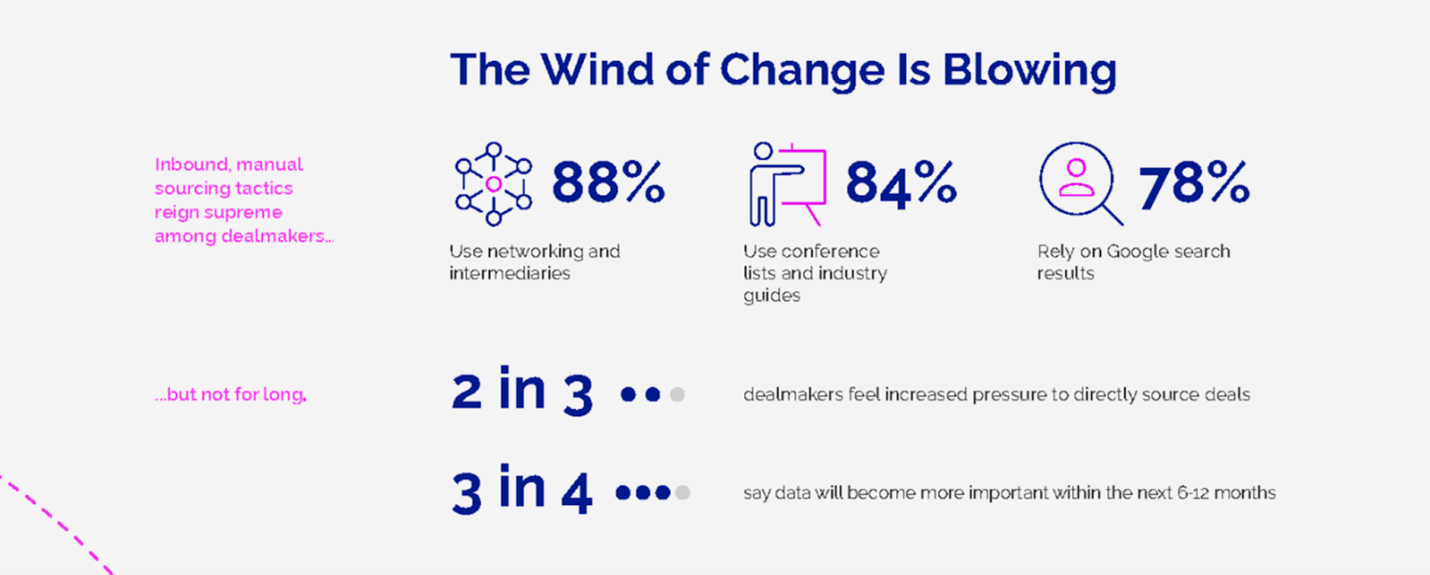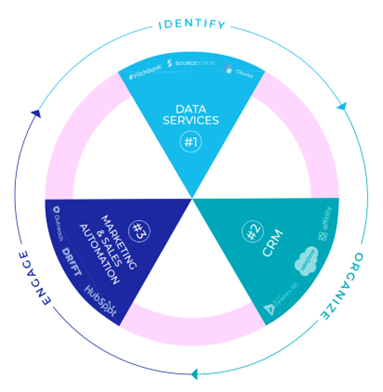Sourcescrub and Grata are joining forces to deliver the market’s most complete market intelligence platform
Learn more

The private equity market is changing again. On the heels of are cord-setting 2021, reports show deal volume is slowing. With fewer deals and a potential recession on the horizon, LPs have their pick regarding who to work with and what opportunities to invest in. For GPs to attract LPs in this incredibly competitive market, they need to understand it's a matter of demonstrating skill and proving that last year's deal boom wasn't just luck.
To get insights on what LPs are looking for, Sourcescrub's CEO and Co-Founder Tyler Fair sat down with Mary Hunt, Principal at RCP Advisors and the person responsible for sourcing, due diligence, and portfolio management for the private equity firm. RCP largely focuses on first-time and emerging fund managers through fund-of-funds, secondary funds, and co-investment funds with 20+ years in the industry and more than $12.5 billion in committed capital.
We've distilled the conversation into four tips you can use today to put your best foot forward and attract new LPs for your firm.
When investigating a new relationship with a GP, LPs will ask for information about them and their past business. This track record serves as an excellent tool to show not only how you've worked with your past investments, but also "and perhaps most importantly "how trustworthy you are. "Be clear and honestnot all the time were you the lead partner," says Mary. "I'm going to get to it at the end of the day through my reference calling, so tell me what you contributed versus what others did."
LPs, especially those that have been in the industry for a while, will often have their own database of information about past deals. You can expect an LP to take any prospective GP's track record and benchmark it against the relevant deals in their database. Measuring "apples-to-apples" (e.g., same vintage year, subsector, and deal size) and evaluating the metrics of those deals (e.g., revenue, margin profile, purchase price multiples, etc.) can help LPs understand the skill level of the GP in question.
Since RCP works with emerging fund managers, Mary had an additional tip for those without a fund record: try being an independent sponsor for a few years. As we'll mention in the next tip, creating a pre-fund track record for a few deals over 2-4 years provides proof points that help GPs build relationships with LPs even though they aren't yet managing their own fund.
The private equity industry was built primarily on "who you know." In a recent survey, Sourcescrub found that 88% of dealmakers use networking and intermediaries as one of their main deal sourcing methods. While outbound sourcing is on the rise, building relationships with everyone involved in a deal is still paramount, especially for newer fund managers.

To attract LPs, you must show you're good at building relationships. One example is through outbound communications: Sending the same message to every LP will only set GPs up for failure. "Know what's important to each specific LP" if you want to grab their attention, Mary says. Tailored messaging shows how invested you are in that LP and can help them form a more favorable opinion of you.
Another critical evaluation point for LPs is how you manage existing investments. "A lot of times, GPs buy businesses and put in the minimal value for five years," recounts Mary. What LPs want to hear from reference calls instead is, "'This guy was in there with me, in the trenches, in good times and bad,'" Mary explains. Since LPs are committing their money to you for a decade, they're often interested more in GPs as people rather than entities. Strong people management skills, including how you mentor those underneath you, can help to assuage an LP's fears that their money is in good, attentive hands.
One of the most important questions an LP will ask you is, "Why should I choose you?"If you cannot answer this question to their satisfaction, you've lost them. To be clear, however, this is not solely about touting past successes "while there's a lot of work involved in securing deals, there's also often a bit of luck, and luck is not a bankable trait.
To attract LPs effectively, you must be able to demonstrate your approach to the market and how you differ from every other GP out there. "How do you prove, not only to me as an investor but to management teams or founders, that you're the right buyer for their business?" questions Mary. "It's a hard question to answer, especially for generalist managers."
Being data-driven can help immensely. Firms that have invested in data "and especially those with a thematic sourcing approach "are able to develop proprietary approaches to the market that set them apart from the competition. Utilizing data to develop deep domain expertise, source top-performing targets, and even offer existing portfolio companies insight helps you stand out to LPs.
However, don't flaunt strategies that have yet to yield results: "If you have a strategy that you've never actually executed on or if you're doing something you've never historically done before, that's a huge red flag," cautions Mary. Your goal when sourcing LPs is to inspire confidence so they'll trust you with their money, so now is not the time to attempt to differentiate yourself with new, untested approaches or theories, even if they're data-driven.
On top of providing invaluable tips on how to succeed, Mary also offers what she considers two significant mistakes that unsuspecting GPs often make. First, "They're not necessarily plugged into databasesto create a pipeline of opportunities." Second, "It's behind the times "and concerning "to use an Excel spreadsheet to manage your business." You must make sure to have "the right systems in place to track and manage all your inbounds and deals that you're going after," she stresses.

Taking advantage of a CRM and then making sure that CRM is up-to-date and integrated with the latest sourcing technology is incredibly important to do business, let alone attract new LPs. In fact, when evaluating LPs, Mary says that "a key tenet of our diligence discussions" is the GP's pipeline of opportunities. "This is what gives us insight into what the portfolio we're investing in might be," she explains.
Don't be afraid to detail what deals you already have in the works in addition to what you've closed recently. LPs may not be interested in every deal you're making or have made but can get excited about something you may not have expected. In this situation, a healthy CRM, robust deal sourcing software, and an integrated tech stack can help you quickly answer "what's next for your firm?" to pique an LP's attention.
These four tips are just a taste of all the wisdom Mary offers in our interview about how fund managers can attract LPs, even in a hotly competitive market. For more insights, watch the full webinar on-demand: Committed to Data: What LPs Look For When Competition Heats Up.